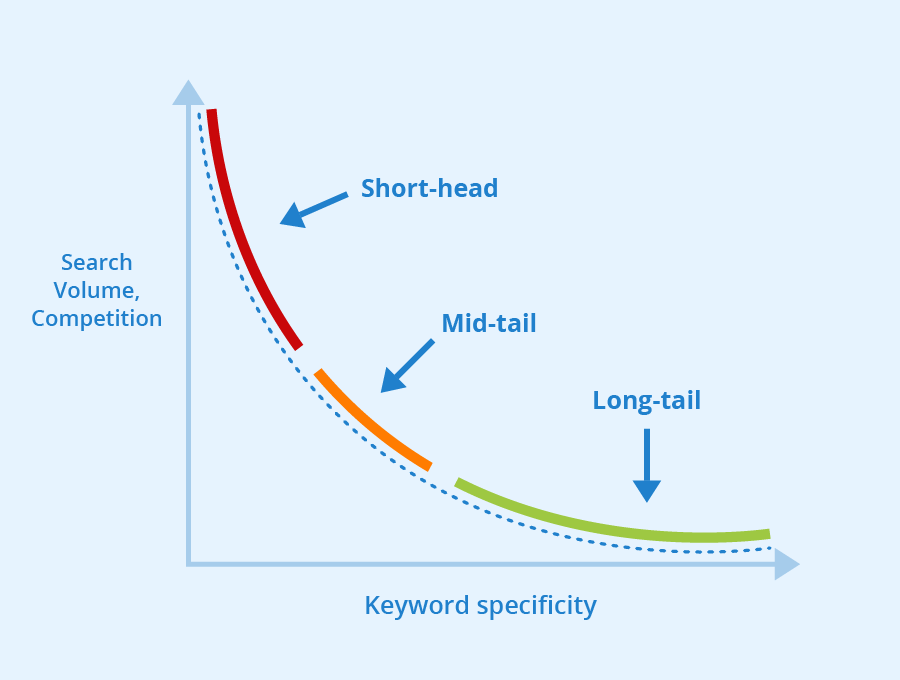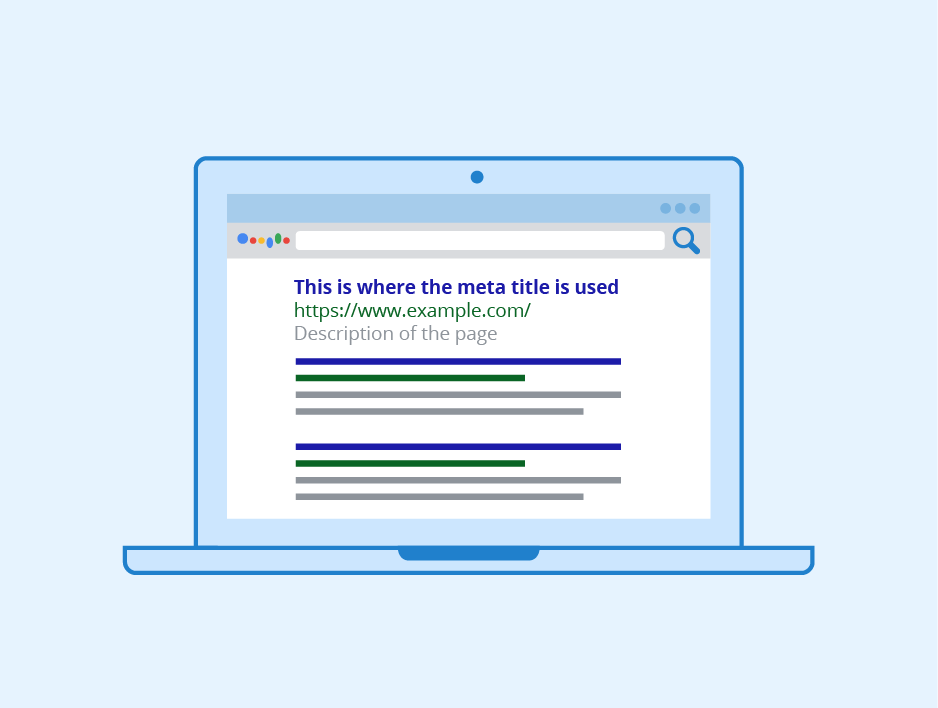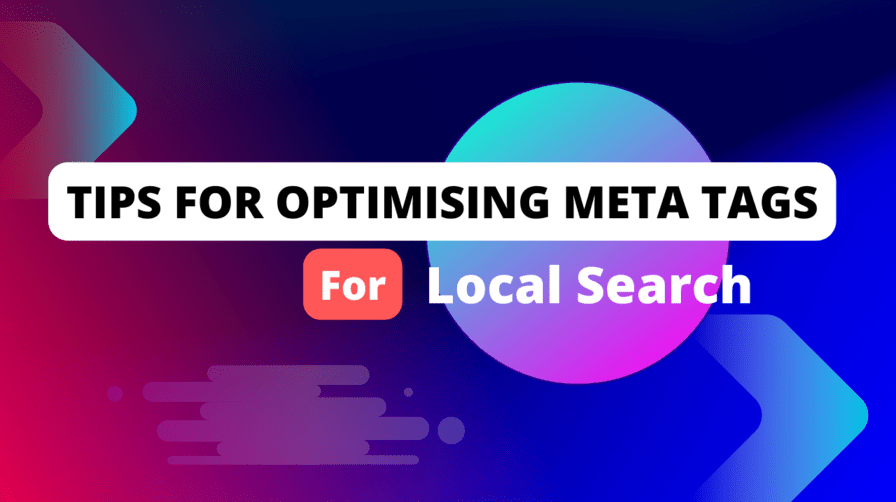Tips for Optimising Meta Tags for Local Searches
You might already know that meta tags play a crucial role in improving your website’s visibility in search results. But, optimising meta tags for local searches requires a slightly different approach than traditional SEO techniques.
To effectively target local audiences, you need to ensure your meta tags contain relevant, localised information that appeals to your regional audience.
In this article, I will provide you with a comprehensive guide to optimising meta tags for local searches, exploring effective strategies and best practices to increase your site’s visibility and attract a regional audience.
Key Takeaways
- Meta tags play a crucial role in attracting local search traffic
- Conducting local keyword research helps identify relevant terms to enhance meta tag optimisation efforts
- Compelling meta titles and descriptions can lead to higher click-through rates and improved search visibility
- Localising content in meta tags can improve audience engagement and relevance
- Regularly monitoring and adjusting meta tag optimisation efforts is essential for long-term success
Understanding Meta Tags and Local SEO
Meta tags are elements that provide information about the content on a webpage. Meta tags for local SEO are specifically designed to attract local search traffic to your website.
There are different types of meta tags, but the most relevant ones for local search engine optimisation are the title tag, meta description, and meta keywords. The title tag appears on the search engine results page (SERP) as the clickable headline, while the meta description is a brief summary of your page’s content. The meta keywords tag can provide context for your page’s keywords and phrases, but it is not as significant as it used to be.
Optimising your meta tags for local search visibility is crucial for attracting regional traffic to your website. A study completed by Rocket Clicks showed a 71.4% increase in clicks by optimisng the meta tags and description. Without proper meta tag optimisation, your website may not show up as high on the results page for local searches. In the following sections, I will share effective on page techniques for optimising your meta tags to enhance your site’s visibility in local searches.
Conducting Local Keyword Research
Conducting keyword research is essential to optimise meta tags for local searches. It involves identifying relevant terms that people in your target region use to search for products or services.
A useful approach to conducting local keyword research is to consider the language used in your target region. Think about the terms that are commonly used in that particular area to describe your products or services.
Another effective method is to leverage online tools such as Google Keyword Planner, SEMrush, and Ahrefs. These tools provide valuable insights into keyword search volume, competition level, and related terms.
Once you have a list of relevant keywords, you can use them to optimise your meta tags for local search engine optimisation. Use them into your meta titles, descriptions, and content to improve your visibility in local searches.

Crafting Compelling Meta Titles for Local Searches
The meta title is an important aspect of meta tag optimisation, influencing click-through rates and search visibility. Creating attention-grabbing meta titles can enhance your website’s performance in local searches and improve your site’s ability to attract local search users.
Here are some of my top tips for optimising your meta titles:
- Include local keywords: Ensure that your meta title includes region-specific keywords and phrases.
- Keep it concise: Limit your meta title to 60 characters or less to ensure it’s fully displayed in search results.
- Highlight unique selling points: Highlight what makes your business unique and relevant to local search users.
- Use action-oriented language: Incorporate strong action verbs and enticing language to encourage clicks.
- Avoid duplication: Avoid duplicating your website’s page title as your meta title.
By following these tips, your website’s meta titles will stand out in local search results and encourage local search users to click through to your site.
Optimising Meta Descriptions for Local Search Traffic
Meta descriptions are short descriptions that appear below the meta title in search engine results. These descriptions play an important role in attracting search users to click on your website. In 3 to 6 months, Socialee boosted website ranking on Google by using location keywords and user-focused content, including in the meta.
To optimise meta descriptions for local searches, it’s essential to include relevant local keywords in the description. Make sure your descriptions are also concise, clear, and accurately reflect the content on the page.
Another strategy to optimise meta descriptions for local searches is to include location-specific information in your descriptions. This information could include the name of the city or town, nearby landmarks, and other geographically relevant details.

Remember that meta descriptions should be unique for each page on your website. Avoid using duplicate descriptions, as this can harm your SEO efforts.
Optimising meta descriptions for local search traffic requires incorporating relevant local keywords, including location-specific details. By following these best practices, you can enhance your website’s visibility in local search results and attract more targeted traffic to your website.
Structuring URL Slugs for Local Relevance
URL slugs play a crucial role in optimising your website for local searches. By structuring your URL slugs with local relevance in mind, you can improve the chances of attracting a regional audience and boosting search visibility.
When crafting your URL slugs, make sure to include relevant local keywords that accurately reflect the content on your page. Keep your slugs short, descriptive, and easy to read, ensuring they accurately represent the content on your page.
Another important consideration is to use hyphens to separate words in your URL slug. This makes it easier for search engines to read your URL and interpret its content, further enhancing your site’s visibility in local SERPs.
Remember to also avoid using unnecessary parameters or variables in your URL slugs, and keep them as clean and simple as possible.
By employing these URL slug optimisation tips as part of your broader meta tag optimisation strategy, you can enhance your site’s local SEO and attract a more targeted audience. Take a look at my guide to optimising website URLs to gain a better undertanding,
Incorporating Localised Content in Meta Tags
As a local business owner, you need to incorporate localised content within your meta tags to attract your target regional audience. Local search meta tag optimisation involves more than just including the location in your title and description tags. You need to create content that resonates with local users and aligns with their search intent to improve your local SEO performance.
One effective strategy is to include location-specific keywords in your meta tags. For example, if you own a coffee shop in London, you could include different types search terms like “coffee shop in London” or “best coffee in London” in your meta tags to attract local search traffic. Make sure to use these keywords naturally and avoid keyword stuffing, which can negatively impact your search rankings.

Another way id suggest is to incorporate localised content in your meta tags is to add city or region-specific landing pages to your website. These pages should contain location-specific information such as your address, opening hours, and contact information, as well as unique content that highlights your business’s local relevance. You can include links to these landing pages in your meta tags to drive more traffic to them and improve their search visibility.
Example:
| Meta Tag | Content |
|---|---|
| Title Tag | Best Coffee Shop in London | XYZ Coffee Shop |
| Description Tag | Looking for the best coffee shop in London? Look no further than XYZ Coffee Shop! We offer a wide range of high-quality coffee drinks, pastries, and snacks that are sure to satisfy your cravings. Visit us today and experience the best coffee in London! |
By incorporating localised content in your meta tags, you can improve your site’s relevance to local search users, enhance its visibility in local search results, and attract more targeted traffic to your website. Make sure you remember to create high-quality, relevant, and original content that aligns with your audience’s search intent to achieve the best results for your local SEO meta tag optimisation efforts.
Leveraging Schema Markup for Local SEO
Schema markup is a powerful tool that can help enhance your website’s visibility in local search results. By providing search engines with additional information about your website, you can improve the accuracy and relevance of your meta tags, making it easier for potential customers to find your business online.
Local search meta tag optimisation and local SERP meta tag optimisation are two key areas where schema markup can be particularly effective. Here are some tips for leveraging schema markup to optimise your meta tags for local SEO:
| Tip | Description |
|---|---|
| Include Local Business Data | Schema markup allows you to add local business data to your website’s meta tags, such as your business’s name, address, and phone number. This information helps search engines to better understand the geographic relevance of your site and can improve your visibility in local search results. |
| Use Localised Content Markups | You can also use schema markup to highlight localised content on your website, such as reviews, ratings, and testimonials specific to your region. This can help further boost your local search visibility and attract a regional audience. |
| Add Product and Service Details | Schema markup enables you to provide detailed information about the products and services your business offers. This can help search engines to better understand the relevance of your website for specific local search queries and improve your visibility in local search results. |
| Implement Event Markups | If your business hosts local events, you can use schema markup to provide event details such as the event name, date, and location. This can help improve the accuracy and relevance of your meta tags for local search users and attract more local visitors to your website. |
By implementing these tips, you can effectively leverage schema markup to enhance your meta tags for local SEO, improve your visibility in local search results, and attract a regional audience to your website.
Optimising Meta Tags for Mobile Searches
The prevalence of mobile devices in today’s world necessitates optimisation of meta tags to cater to mobile searches. Mobile users are more likely to search for information on-the-go and need quick answers to their queries. Therefore, it is essential to ensure that your meta tags are optimised for mobile users to improve your website’s visibility in local searches.
Here are some tips to optimise your meta tags for mobile searches:
- Keep meta titles concise and limit them to 55 characters to ensure that they don’t get truncated on mobile screens.
- Use descriptive and attention-grabbing meta descriptions, which should be not more than 155 characters long.
- Make sure that your website is optimised for mobile devices, with a responsive design that automatically adapts to different screen sizes.
- Use schema markup to provide more context to search engines, indicating that your website is mobile-friendly.
- Include local keywords in your meta tags to help users find your website when they search for location-specific terms on mobile devices.
By optimising meta tags for mobile searches using the tips above, you can attract more targeted traffic to your website and enhance local SEO performance.
Analysing and Adjusting Meta Tag Performance
Optimising meta tags is not a one-time event. To stay ahead in the rapidly evolving landscape of local search, monitoring and analysing meta tag performance is key.
Id recommend you use tools such as Google Analytics and Google Search Console which can provide valuable insights into how your meta tags are performing. Analyse metrics like click-through rates, bounce rates, and time on page to determine if your meta tags are attracting the right audience and driving engagement.
Make necessary adjustments based on your analysis to improve results. Consider testing different meta titles and descriptions to see which ones perform better. Look for opportunities to add or refine localised content within your meta tags. Keep in mind the local meta tag best practices shared earlier in this article while making adjustments.
Conclusion
Optimising meta tags for local searches plays a crucial role in local SEO strategy. By implementing the tips and strategies discussed in this article, I believe you can enhance your site’s visibility, attract a regional audience, and drive more targeted traffic to your website. It’s important to regularly monitor and adjust your meta tag optimisation efforts to stay ahead in the ever-evolving local search landscape.
As I have discussed, understanding meta tags and their impact on local SEO is essential for crafting effective meta titles and descriptions that entice search users to click on your website. Conducting local keyword research, incorporating localised content, and leveraging schema markup can all enhance your meta tag optimisation efforts and attract more relevant traffic.
Structuring URL slugs for local relevance and optimising meta tags for mobile searches are crucial elements to keep in mind. It’s also essential to analyse and adjust your meta tag performance regularly to ensure continuous improvement in your local search visibility.
Optimising meta tags for local searches requires a strategic approach and ongoing effort, but for me, the benefits are well worth the investment. By following the tips and strategies ive outlined here, you can improve your site’s visibility in local search results and attract a regional audience that is more likely to convert into customers.
FAQ
What are meta tags?
Meta tags are snippets of code that provide information to search engines about a webpage’s content. They play a crucial role in determining how a webpage appears in search engine results pages (SERPs).
How do meta tags impact local SEO?
Meta tags, when optimised correctly, can help improve a website’s visibility in local searches. By including location-specific keywords and information, businesses can attract their target regional audience and increase their chances of appearing in local SERPs.
How do I conduct local keyword research?
Conducting local keyword research involves identifying relevant terms and phrases that potential local customers might use to search for products or services. This can be done by using tools like Google Keyword Planner, analysing competitor websites, and considering the specific needs and preferences of the local audience.
What are some tips for crafting compelling meta titles for local searches?
To create compelling meta titles for local searches, it’s essential to include relevant location-specific keywords, keep the title concise (around 50-60 characters), and make sure it accurately reflects the content of the webpage. Using words and phrases that resonate with the local audience can also help you attract their attention.
How can I optimise meta descriptions for local search traffic?
To optimise meta descriptions for local search traffic, it’s crucial to include location-specific keywords, emphasise unique selling points, and provide a clear and compelling call-to-action. Keep the description between 150-160 characters and ensure it accurately reflects the webpage’s content to entice search users to click.
How should I structure URL slugs for local relevance?
Structuring URL slugs for local relevance involves including location-specific keywords or the name of the targeted area. For example, instead of www.example.com/product123, use www.example.com/product123-new-york. This helps search engines and users understand the local relevance of the webpage.
How can I incorporate localised content in meta tags?
To incorporate localised content in meta tags, include location-specific keywords and information such as the business’s address, operating hours, and local contact numbers. This helps search engines understand the relevance of the website to local searches and provides valuable information to potential customers.
What is schema markup, and how does it help with local SEO?
Schema markup is a structured data vocabulary that helps search engines understand the content of webpages better. By leveraging schema markup for local SEO, businesses can provide additional information, such as their business address, opening hours, reviews, and ratings. This enhances the website’s visibility in local search results and attracts more relevant local traffic.
How can I optimise meta tags for mobile searches?
To optimise meta tags for mobile searches, make sure they are concise and provide information relevant to mobile users. Optimise meta titles to fit within the limited mobile screen space, create compelling meta descriptions that entice mobile users to click, and ensure that the website is mobile-friendly, providing a seamless user experience.
How do I analyse and adjust meta tag performance?
To analyse and adjust meta tag performance, you can use tools like Google Analytics and Google Search Console to track metrics such as click-through rates, impressions, and conversions. Analyse this data regularly to identify trends, identify underperforming meta tags, and make necessary adjustments, such as refining keywords or rewriting meta descriptions.

